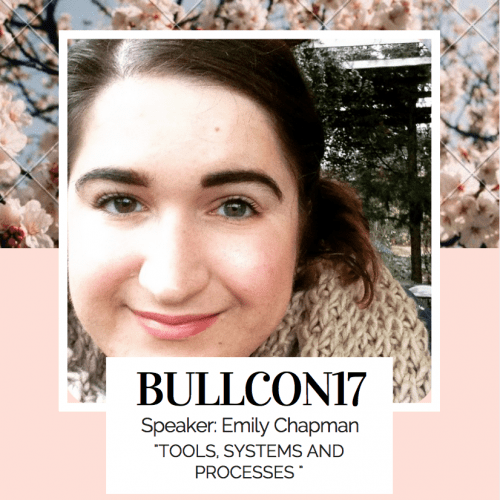Updated 2023
In my twenties, I’m out at a bar with my new guy. His friends have just arrived, so everyone stands in a circle while he makes introductions.
“This is Joe. He’s a designer. This is Mason. He’s also a designer.” Five or six designers later (I guess they hang out together?): “This is Jennifer.”
That was it. Because being female is job enough! (Might as well just change your name to Mrs. Boyfriend!)
When I pointed it out later, my guy was mortified. He explained that I had a lot of jobs (see Bullish: How to Do Many Things at Once). I explained that, since I had so many, it should have been even easier to recall one of them.
(See Bullish: Picking a Boyfriend Who Doesn’t Hold Back Your Career or Bank Account.)
Just last week, I heard an even more astounding version of this from a twentysomething woman I know who runs an art book publishing house (I’ve had to anonymize this story a bit) with several full-time employees.
She was sitting at an awards banquet with her boyfriend when a round of introductions was made. All the men were introduced with name and job title. She was introduced as, “And Janelle, whose big accomplishment is being Noah’s girlfriend.” People laughed. Adorbs!
As Janelle was telling this story, all the women listening were aghast. “Did you say anything?!”
“I really couldn’t,” she explained. “Jay-Z was sitting right there.”
Two years ago, Goop published an etiquette guide, in which Gwyneth posed questions to fashion editor Derek Blasberg. Here’s one:
Q: At what point in a conversation with a person you’ve just met is it polite to ask what that person does for a living (if it all)?
A: For us Americans, it’s almost always one of the first questions someone asks, which can be a touch brutish. (I’ve met people who care more about a person’s occupation than their actual name, which is extremely gauche.) I say it needs to enter the conversation naturally, even if that means you steer the conversation in that direction; for example, if the person is talking about a recent work trip, then it’s fine to ask what they do. It should never be the first question, or anywhere near the first one, and it shouldn’t be a forced inquiry. But, overall, work is fine to talk about. Particularly if conversation is getting boring, talking about what we do can open up a whole new series of topics.
Asking about work shouldn’t be “anywhere near the first question”?
On the one hand, sure, we’re more than our jobs. Many people have jobs they hate, or at least don’t consider part of their identity.
On the other hand, generations of women have fought for the right to have a professional identity at all. Women have fought for the right to be identified by our individual accomplishments and choices, rather than as an appendage of a father or husband, or as simply “a woman,” fairly undifferentiated from other women.
In many social situations, if I meet a man who doesn’t ask what I do within the first few questions, I might well assume he thinks women’s professional lives don’t matter. (Joe and Mason are designers, and I … exist.)
Oh, there are plenty of exceptions. If we’re at a kite-flying festival and nobody’s talking about anything but kites and picnics, cool. But if conversations about work are happening, or conversations about social science and public policy wherein it would be helpful to know if anyone in the room is an expert on the matter at hand, it’s suspect not to inquire about what the women in the room actually do all day.
I would also say that New Yorkers are fairly unaccustomed to the idea that people would be offended by being asked their profession too soon. This is a town focused on work. People move here to work. Even people whose jobs are not very impressive are usually happy to be asked what they do, because the reason they have unimpressive jobs is to pay the bills while they write plays, or act, or are finishing school, or are working on a startup.
When people ask, “What do you do?”, they want to know the thing you identify as your profession, your art, or your calling. If you are a temp worker to pay the bills and your heart is in playwriting, I want to know about the playwriting, even if you’ve never been paid for it.
It’s not a degrading question. It is, in most cases, literally asking people, “What is the one thing you spend the most of your time doing?” It’s also generally a question about something people have chosen.
Besides, what’s the alternative? The weather? Sports? Top 40 hits? Consider your options:
We could start with current events, but honestly, I’d like to know first whether you’re a foreign correspondent or a statistician or something so I don’t make a damn fool of myself.
“Where did you go to college?” and “What did you study in college?” are much snottier questions than “What do you do?”, since the questions are much more specific and likely have more to do with the person’s parents’ financial background than with who that person is today.
Hardly any young-ish people in New York have kids, but even if they did, how is it less gauche to ask about people’s kids rather than their jobs? Many women would assume they were being stereotyped. And for every person who might be offended by a question about jobs (the painfully unemployed, for instance) is someone who finds their reproductive situation equally painful. So this line of questioning is hardly an improvement.
Surely you shouldn’t lead with asking people’s religion or political party, unless you are perhaps at a religious or political event (“And what brings YOU to this interfaith conference?”)
I’m all about parties that exist entirely in the world of ideas, but again, if we’re going to talk about epigenetics or socialized medicine or geopolitics, I think it would be extremely relevant to find out beforehand if you are a geneticist, a doctor, or a political scientist.
So, I think the rule against asking about people’s professions has got to go. Sorry, stuffy old Brits, you’re wrong.
Yes, you should ask people’s names before asking about their professions. (See Bullish Life: How to Remember Names.) But then it’s really fine to ask about their professions.
In Bullish: How Talking About Money Can Make You More Of It, I advocated greater openness about money — in part, for social justice reasons. It is very hard for people to tell when they are suffering from salary discrimination if they have no idea what other people in their profession (and office) make. The taboo about money only benefits employers — it makes people feel dirty asking for raises, and allows there to exist an entire floor full of managers where the women are categorically paid less than the men but don’t know it. Lily Ledbetter only found out through an anonymous note in her mailbox.
There are social justice reasons that asking about professions is a good idea. It acknowledges that women have agency unrelated to who they came to the party with. And it privileges people’s choices and accomplishments over social and family connections: it lets ambitious and interesting newcomers join the conversation.
Furthermore, it’s just silly and antiquated to make small talk about the food and the holidays and how we met the hostess without knowing who the heck we’re talking to. (I also, incidentally, want to ditch that custom where men pull out your chair for you, if for no reason other than that it is really, really awkward to sit down in a moving chair that’s threatening to hit you in the back of the knees.)
Of course, the prohibition on asking people about their jobs exists, in part, so that people needn’t be judged by their salaries. It goes without saying that you shouldn’t do that. I know people who are dirt-poor who make great paintings and write great books. I don’t judge people by their salaries. I do judge people based on whether they’ve got the gumption to make some kind of move towards doing the thing they want to do, whether that’s making money or making street art.
Women have earned the right to be asked, “What do you do?”









